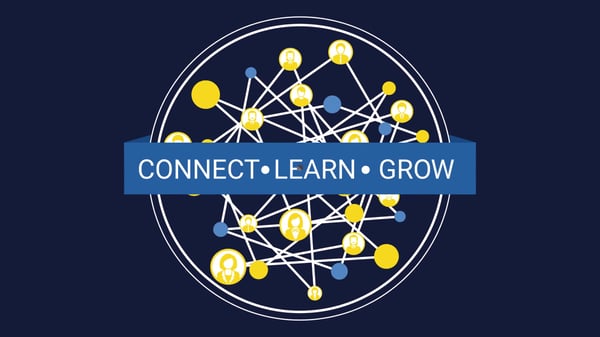A recent study from Accenture Strategy (of over 1,250 execs) revealed an odd set of statistics. According to their findings, 76% of respondents agreed that ecosystem-focused business models would be one of the main sources of disruption in business, and a whopping 84% said that ecosystems are important to their strategy. Yet, only 46% of those execs are actively exploring ecosystems as a new business model.
What’s the problem here? There’s a high degree of agreement that ecosystems are important and will be major disruptors, yet less than half of businesses surveyed are actually trying to embrace the model.
We have some insight on the relevant pain points associated with becoming part of an industry ecosystem. These are some of the objections we frequently hear, and some ideas for getting around the challenges they point to.
1. A fear of sharing data
This is probably the most common objection we hear, and one that’s understandable. The ecosystem model is based around a relatively free flow of information between partners at different levels, and not every company is comfortable with that level of transparency. However, a few things to note here:
- Ecosystems do not necessarily entail an unrestricted flow of information. They can still have access hierarchies, and security systems in place to segregate users.
- Security and anti-hacking techniques are becoming more robust all the time. A cloud-based ecosystem isn’t going to increase the chances of data theft.
- Information, in general, is becoming more free. This trend shows no signs of reversing. Companies which attempt to horde data are going to have an increasingly hard time making good use of it, compared to companies which utilize ecosystems to share the wealth among partners.
It’s also worth noting that access within an ecosystem can even be monetized. High level training and technical documents, for example, can be pay-gated so that only truly interested parties can gain access.
2. The need for a significant technology investment
Another common source of concern is a lack of technological investment, particularly on-premises investments. For the most part, this worry stems from misunderstanding: most ecosystems utilize cloud-based systems and software, with very little need for hardware investment. Any company with a relatively modern computer/Internet infrastructure can jump into ecosystems with little problem.
Another related concern may have to do with the software itself, such as lacking proper tools for accumulating, collating, and analyzing data. That isn’t as easy to handwave away, except to say that businesses going forward would need to make those sorts of software investments either way. Businesses which aren’t actively utilizing their data are going to fall ever farther behind.
3. A lack of internal expertise
The third concern that often comes up is a lack of manpower. Many operations still lack a CIO or CTO style position focused on technology, and their IT department may be mostly focused on day-to-day technical support rather than building future projects.
This is a more critical concern, but it can be overcome through the use of outside expertise. An experienced consultant can analyze a business structure and make easily-achieved suggestions at reforming it to work with an ecosystem model. Better yet, the software which backs ecosystems is becoming more common and easy to deploy. The latest generation of ecosystem software can be quickly learned by partners at all levels, while requiring little technical know-how to administer.
FUSE Your Operations Together
FUSE by LogicBay is the industry’s premiere easy-to-deploy/easy-to-use solution for creating ecosystems of any size, for businesses of any size. We have the experience to help your business navigate coming changes, and be one of the leaders in succeeding with ecosystem-based models.
Contact us to learn just how easily FUSE could reinvigorate your business.

